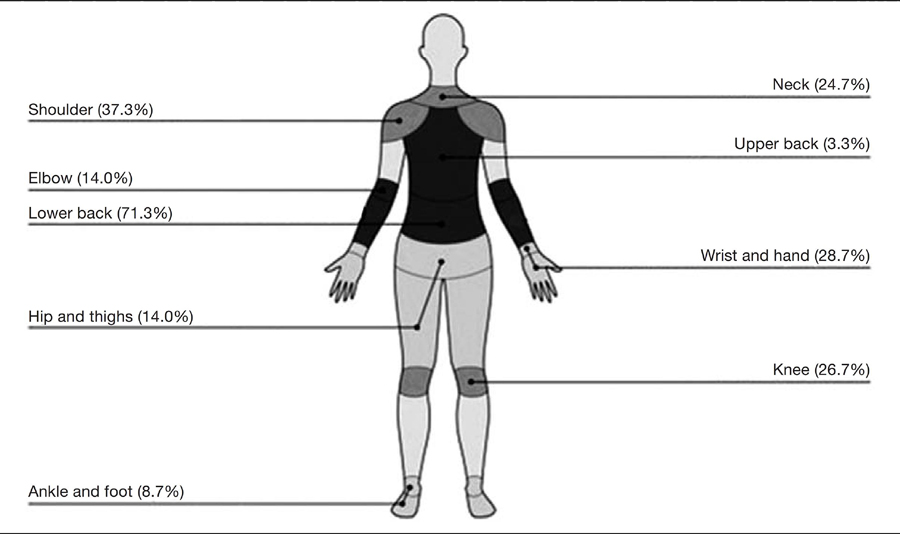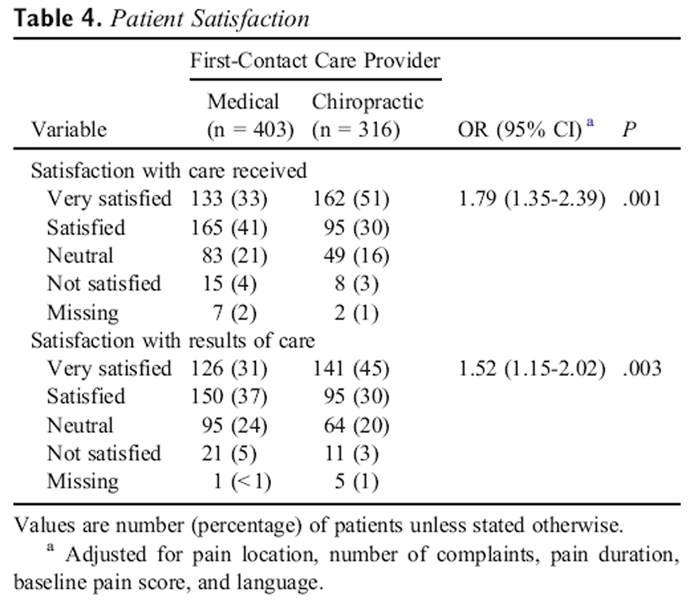Musculoskeletal Healthcare: Have we Over-egged the Pudding?
SOURCE: International J Rheumatic Diseases 2019 (Nov); 22 (11): 1957–1960
Christopher G. Maher Mary O’Keeffe Rachelle Buchbinder I. A. Harris
Institute for Musculoskeletal Health,
Sydney, NSW, Australia
| Editorial Comment:
This paper details significant issues with the current allopathic approach to managing musculoskeletal (MSK) complaints. The authors pull no punches, and are to be commended. We have discussed some the underflying issues previously. The reality is that medical schools do not devote enough time to reviewing the MSK system. In 1998 the Journal of Bone and Joint Surgery decried this problem, and numerous articles followed over the next 11 years, when I finally lost interest in compiling them. You may want to review that review the series of 12 more articles on the subject, but I prefer the idea of offering chiropractic as a referral option for busy MDs who are swamped with patients with MSK comlaints, who often don’t respond well to pain killers or passive therapies. Think how much happier those MDs will be when their patients thank them for making the referral. |
From the FULL TEXT Article:
INTRODUCTION
There are more articles like this @ our:
Headache Page and the:
Low Back Pain Page and the:
The phrase “to over-egg the pudding” is a terrific analogy for what is now increasingly common in health care: medical overuse. Cooks would know that if you skimp with the eggs a pudding won’t hold together and if you use too many eggs the pudding will go rubbery. And in musculoskeletal health care we also need to get the balance right. People’s health can suffer when they receive too little health care and also if they receive too much health care.
The problem of too little health care is well recognized and it is easy to understand that patients’ health can be put at risk by underuse of proven healthcare services. However, the opposite problem is also possible but is less well recognized. [1] In this editorial we adopt some perspectives from the field of overdiagnosis to consider overuse in musculoskeletal health care.
Overdiagnosis [2] is an unwarranted diagnosis that leads to unnecessary treatments that do not benefit patients and that wastes health resources that could be better used elsewhere. Overdiagnosis also may cause harms: direct effects, unintended/indirect consequences, psychological impact, costs and resource implications, opportunity cost. We focus on 4 aspects of overdiagnosis that can lead to medical overuse in musculoskeletal health care:
-
Overtesting where patients receive unnecessary tests
-
Overdetection where clinicians act upon clinically unimportant findings
-
Overdefinition where the boundaries between disease and health are shifted to encourage more healthcare, and
-
Overtreatment where culture, industry and health systems encourage treatment with no net benefit.
We provide some examples that illustrate the nature and size of the problem, [3] and highlight potential drivers of overuse of musculoskelatal health services (Table 1).
Read the rest of this Full Text article now!





Leave A Comment